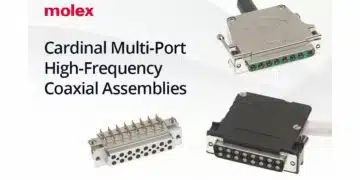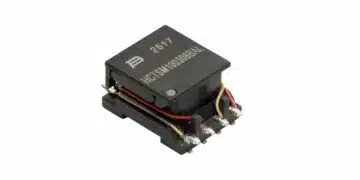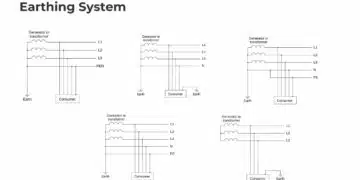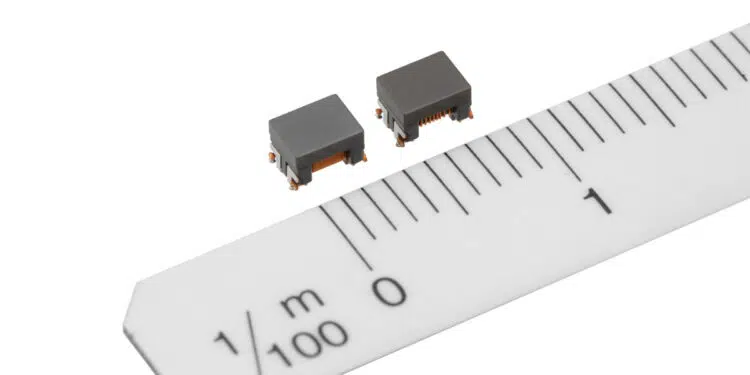TDK Corporation announces the release of its newly developed ADL3225VM inductors for use in automotive Power over Coax (PoC) systems.
Measuring at 3.2 x 2.5 x 2.5 ㎜ (L x W x H), these inductors provide a compact solution for designers looking to reduce vehicle weight as manufacturers add more sensors and cameras to accommodate expanding automotive and advanced driver-assistance systems (ADAS) applications. The proprietary structural design and wire winding manufacturing process ensure high impedance over a broad bandpass of 1 ㎒ up to 1 ㎓. The inductors are compliant with AEC-Q200 and achieve the highest-rated current in the industry for the 3225 size*. Volume production began in October 2021.
Performance advancements of ADAS applications have resulted in the increased production of electric control units (ECUs), particularly around view cameras and front sensing cameras, escalating the need for high-speed interfaces. Low-voltage differential signaling (LVDS) with transmission rates of up to 1.5 Gbit/s transfer image signals from automotive cameras to the control circuit board. This process involves PoC systems that relay data and power over the same coaxial cable. TDK’s ADL3225VM inductors serve as a blocking coil that separates ringing currents from the power supply, and increases the currents supplied by PoC systems. They support operating temperatures between -55 ℃ and +155 ℃.
In the future, TDK will further expand the product portfolio to meet the needs of higher-speed and larger-volume transmission for an even wider variety of automotive applications.
- * Source: TDK, as of October 2021
Glossary
- PoC (Power over Coax): Transmission technology whereby both data and power are simultaneously transmitted over the same coaxial cable
Main applications
- PoC for ADAS camera system circuits
Main features and benefits
- Achieves the highest rated current in the industry for the 3.2 ㎜ (L) x 2.5 ㎜ (W) size
- Achieves high impedance over a broad bandpass
- Supports a wide operating temperatures range between -55 ℃ and +155 ℃
Key data

** Itemp: 105 ℃ : when based on temperature rise (temperature rise of 40 ℃ by self-heating)
** Itemp: 125 ℃ : when based on temperature rise (temperature rise of 30 ℃ by self-heating)
Values when assessed using a single-layer circuit board with a total thickness of 1 ㎜ and a copper layer thickness of 70 ㎛.
































